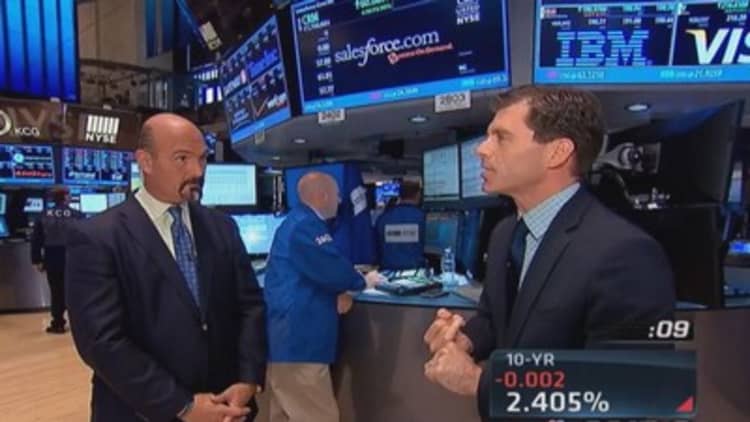The subscription economy is booming.
No longer is the story just about software businesses moving to the cloud. Media companies, health-care providers and carmakers are embracing the emerging business model of charging for services rather than physical products, and building long-term relationships with customers.
Perhaps no company is better positioned to benefit than Zuora, a Foster City, California-based start-up that sells billing and commerce software to help businesses manage subscription revenue.
Little known outside of Silicon Valley, Zuora has ballooned to close to $1 billion in valuation, after the company said Wednesday that it raised $115 million in fresh capital.
Read MoreWall Street's ongoing struggle to make sense of the cloud
"Betting on Zuora is a macro bet on the economy moving from products to services," said Mike Volpi, a partner at Index Ventures and Zuora board member. "The message is getting around to classical industrial companies."
Index, an early Zuora backer, participated in the new financing round, which included new investors Wellington, BlackRock and Passport Capital. Allen & Co. advised Zuora on the financing.
Zuora was founded in 2007 by Tien Tzuo, who was the 11th employee at Salesforce.com and ran marketing and strategy at the cloud software pioneer. When he started Zuora, the software as a service, or SaaS, business model was still in its infancy and was mostly gaining traction among a new class of enterprise software start-ups. Salesforce founder Marc Benioff was among Zuora's first investors.
Read MoreWhy money-losing Box is finally ready for IPO
Tzuo has spent years evangelizing the benefits of subscriptions. From a business perspective, the advantage is that it's recurring revenue, meaning once a sale is made, the customer just keeps cutting monthly checks, creating a highly lucrative and predictable revenue stream. The trade-off is that the customer can turn the subscription off if the service isn't living up to expectations.
That means businesses have to invest in real customer service and constantly listen to client and partner feedback, making tweaks and improvements with regularity.
OnStar, the Web-connected diagnostic service owned by General Motors, is using Zuora for its vehicle protection and security systems that consumers buy on a subscription basis.
Schneider Electric, a French energy management and automation company with 25 billion euros ($26.7 billion) in annual revenue, tapped Zuora last year for its digital services as the company works toward selling more energy efficient solutions.

"This was something very, very specific and pretty critical," said Herve Coureil, chief information officer at Schneider. Coureil said Schneider learned about Zuora through conversations with other SaaS companies that were partners and customers.
For Tzuo, this is exactly the type of momentum he was expecting when he started Zuora, though it took a bit longer to play out than anticipated. The company built its early success selling to SaaS businesses like Box, DocuSign, Zendesk and Marketo. There's plenty of demand in tech to build a nice company, but to create the big public franchise that Tzuo envisions, he has to sell more broadly.
With phrases like the Internet of Things and home automation now being thrown around by the world's largest enterprises, it's clear that data and information from connected devices are key ingredients to future services. Zuora is built to help companies deal with issues like customer retention and churn as they transform their business models.
Read MoreOracle's cloud gains momentum
But Tzuo knows that these are the same enterprises that have traditionally been big buyers of software suites from Oracle and SAP. Those giant vendors are the companies Tzuo sees as his biggest competitors, because they have the scale to bolt on features and keep customers locked in.
That's why Tzuo just reeled in a bunch of dough, bringing the total amount raised to $250 million. Zuora has 500 employees now, with plans to reach between 750 and 800 in the next year.
"It's a land grab," he said. "If we're not big enough to interact with those companies, and if we don't' have enough people, someone else will come around and sell them something that's not as good. But we were't there."





